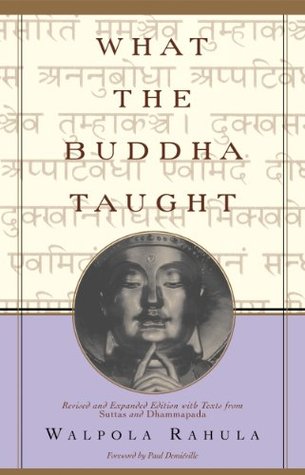More on this book
Community
Kindle Notes & Highlights
Read between
February 26 - March 1, 2025
incarnations in different forms, or inspired by him. The Buddha was not only a human being; he claimed no inspiration from any god or external power either. He attributed all his realization, attainments and achievements to human endeavour and human intelligence.
Man is his own master, and there is no higher being or power that sits in judgment over his destiny.
The freedom of thought allowed by the Buddha is unheard of elsewhere in the history of religions. This freedom is necessary because, according to the Buddha, man’s emancipation depends on his own realization of Truth, and not on the benevolent grace of a god or any external power as a reward for his obedient good behaviour.
The root of all evil is ignorance (avijjā) and false views (micchādiṭṭhi).
To force oneself to believe and to accept a thing without understanding is political, and not spiritual or intellectual.
Violence in any form, under any pretext whatsoever, is absolutely against the teaching of the Buddha.
Almost all religions are built on faith—rather ‘blind’ faith it would seem. But in Buddhism emphasis is laid on ‘seeing’, knowing, understanding, and not on faith, or belief.
The conception of dukkha may be viewed from three aspects: (1) dukkha as ordinary suffering (dukkha-dukkha), (2) dukkha as produced by change (vipariṇāma-dukkha) and (3) dukkha as conditioned states (saṃkhāra-dukkha).
The Buddha declared in unequivocal terms that consciousness depends on matter, sensation, perception and mental formations, and that it cannot exist independently of them. He says:
The theory of karma is the theory of cause and effect, of action and reaction; it is a natural law, which has nothing to do with the idea of justice or reward and punishment.


